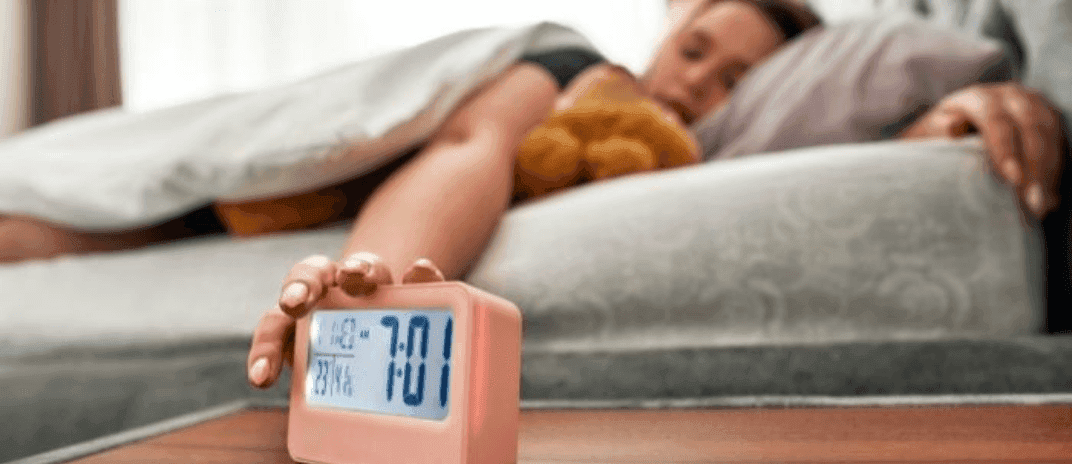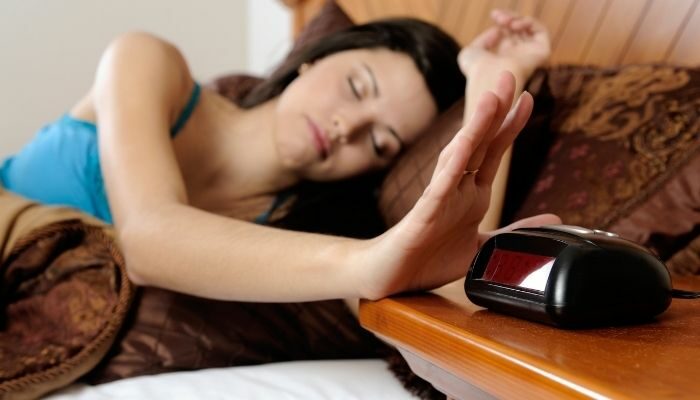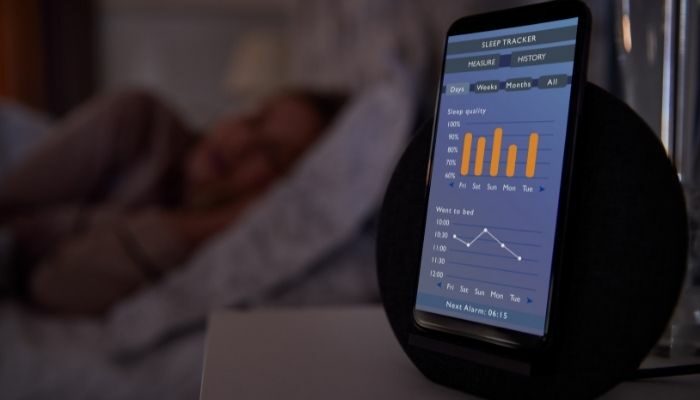


Have you ever wondered about the potential implications of hitting the snooze button repeatedly? We would all love a few extra minutes in bed, there’s no doubt about that. However, it’s often easy to get caught up in a loop of hitting the snooze button and delaying getting up longer and longer. However, this could raise a significant (yet surprising) concern for your health. As such, today, we’re looking at some of the key things you should know about whether hitting the snooze button is bad for your health.
The morning alarm is often a dreaded sound and fills our hearts with frustration every morning. And, for so many of us, the temptation for just “five more minutes” can often be overwhelming. In doing so, hitting the snooze alarm can seem like a very tempting opportunity. However, did you know that there could be potential health implications if you rely on the snooze alarm too often?
It’s something many of us overlook. Still, the shocking reality is that hitting the snooze button regularly could leave you feeling out of sorts and under the weather for the rest of the day. But why is this? Well, there are a few key reasons that hitting the snooze button may be bad for your health; these include the following three points.

You probably don’t realize it, but hitting the snooze button regularly in the morning can increase your blood pressure and heartbeat. This causes your body to enter a “flight or fight” response state. This panic is often also triggered by our regular alarms. However, adding additional, unnecessary snooze alarms to your routine certainly compounds the issue. In doing so, we wake up in a heightened sense of alertness and panic (even if you don’t necessarily feel awake). In turn, this results in greater feelings of stress throughout the day.
As such, cutting out the snooze button from your morning routine could significantly benefit your ability to lead a happy, productive, and confident lifestyle. Waking up stressed undeniably isn’t a good way to start the day. This early morning stress may make minor issues seem more problematic down the line. Hence, this could also make it harder for you to relax and fall asleep the following evening. And so begins a vicious cycle of stress that’s hard to escape from.
Not all sleep is equal – and, for the most restful sleep, it’s essential to try and enter REM sleep, which is the deepest sleep phase overall. REM sleep is integral for restoring our health, energy, and strength, but it’s typically only entered during the deepest sleep.
However, hitting the snooze button regularly can impact this. By using the snooze button more than “every now and then,” you begin training your brain to expect to sleep for just a short while – which can hinder your ability to enter REM sleep. This may also leave you suffering from poorer quality sleep throughout the night – further compounding the issue as time goes by and you get increasingly tired.
“Snoozing” isn’t restorative sleep, and you most certainly won’t be getting proper REM sleep during this time. Hitting the snooze button multiple times in the morning can leave you much more tired than if you simply wait an extra ten minutes to set that initial alarm – helping you wake up feeling more restored and ready to hit the day.

We all get a little bit cranky and irritable when we’re tired. However, did you know that hitting the snooze button might actually impact how your genes work? Even more worryingly, it only takes around one week of hitting the snooze button (and the subsequent disrupted sleep) to impact how your genes function. Of course, this could play a significant role in many aspects of your life.
Recent research has concluded that up to 700 different genes may be impacted after just one week of poor sleep. The consequences of this could be severe, with gene expression being either dampened or heightened. This can lead to potential issues such as a poor body clock cycle, a weakened immune system, heightened stress responses, and a slower metabolism (resulting in weight gain).

At this point, we’ve clarified some of the key issues that come with using the snooze button too regularly. But are there ways to combat this? Well, fortunately, overcoming those early-morning urges to go back to sleep doesn’t have to be impossible, and the following tips may help:

If you’re the sort of person who relies heavily on the snooze button to get out of bed in the morning, the snooze alarm can seem like a saving grace. However, while it can seem like frustrating, ignoring the snooze alarm wherever possible may provide substantial health benefits. So, don’t leave your health to chance; give the snooze button a miss, and see how it could help!
How To Stop Snoozing - Headspace. (n.d.). Headspace. https://www.headspace.com/sleep/how-to-stop-snoozing
Innes, E. (2013, February 25). Just ONE WEEK of disrupted sleep could play havoc with your health. Mail Online. https://www.dailymail.co.uk/health/article-2284275/Just-ONE-WEEK-disrupted-sleep-play-havoc-health.html
Solis-Moreira, J. (2024, May 1). Is Snoozing the Alarm Good or Bad for Your Health? Scientific American. https://www.scientificamerican.com/article/is-snoozing-the-alarm-good-or-bad-for-your-health/#:~:text=Past%20research%20suggested%20that%20the,eye%20movement%20(REM)%20sleep.